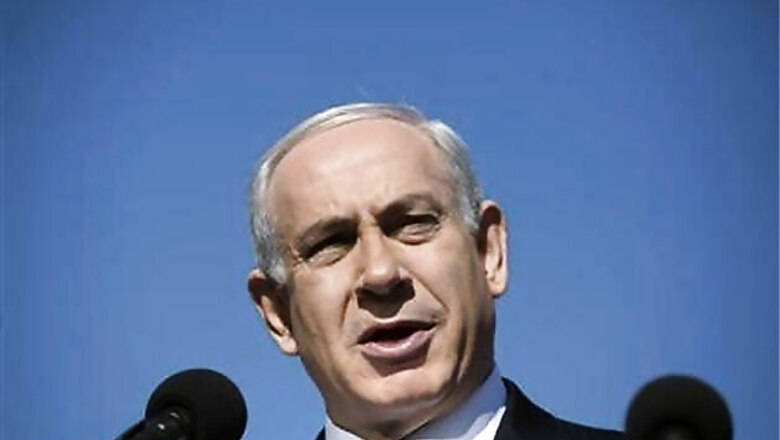
views
Israeli Prime Minister Benjamin Netanyahu gave a guarded response on Sunday to US-Russian deal on Syria's chemical weapons, saying it would be judged on whether it achieved "complete destruction" of the arsenal.
"We hope the understandings reached between the United States and Russia regarding the Syrian chemical weapons will yield results," he said in a speech at a memorial ceremony for Israeli soldiers killed in the 1973 Middle East war.
"These understandings will be judged on their results - the complete destruction of all of the chemical weapons stockpiles that the Syrian regime has used against its own people."
Netanyahu spoke before a planned meeting with US Secretary of State John Kerry, who flew into Israel to brief him on the accord he reached with Russian Foreign Minister Sergei Lavrov on Saturday in Geneva.
The agreement called for Syrian President Bashar al-Assad to account for his chemical arsenal within a week and let international inspectors eliminate it all by the middle of 2014.
Israeli Strategic Affairs Minister Yuval Steinitz, who is close to Netanyahu, said the deal had "disadvantages and advantages".
"On the one hand, it lacks the necessary speed (in removing chemical arms from Syria. On the other hand, it is much more comprehensive, as it includes a Syrian commitment to dismantle the manufacturing facilities and to never again produce (chemical weapons)," Steinitz told Army Radio.
Also on Army Radio, Avigdor Lieberman, chairman of parliament's Foreign Affairs and Defense Committee, said intelligence that Israel has gathered on neighboring Syria could help verify Assad's compliance with the accord.
"We will understand Assad's intentions only in a week when he is meant to hand over a full list of all the chemical weapons at his disposal, and I think Israel has a not bad idea of what chemical weapons he has," Lieberman said.
On Wednesday, Netanyahu said Assad must be stripped of his chemical arsenal and that the outcome of the Syrian crisis would resonate loudly in Iran, whose nuclear program Israel believes is aimed at producing atomic arms - an allegation Tehran denies.
Israel has largely stayed on the sidelines of Syria's civil war, a two-and-a-half-year conflict that pits the Iranian-allied Assad government against rebels who include Islamist militants deeply hostile toward the Jewish state.
"I don't know how the Iranians are reading the deal, because it is also problematic as far as they are concerned," Steinitz said. "Here is their ally, Assad, forced to give up his chemical weapons."
Netanyahu, hinting repeatedly at the possibility of Israeli military strikes on Iran should Western sanctions and diplomacy fail, has called on Tehran to hand over all its uranium enriched above 3.5 per cent and to stop any further purification of the metal toward possible weapons-grade level.




















Comments
0 comment